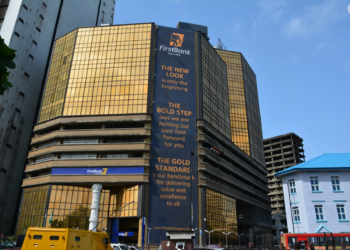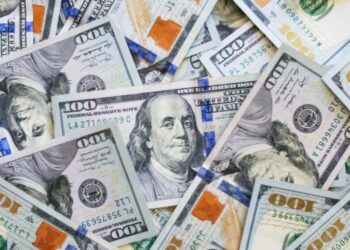JP Morgan Chase (JPM) on Tuesday issued a press release saying it will start phasing out Nigeria from its Emerging Market Bond Index this month and will completely yank Nigeria off the index by end of October. The bank cites the current restrictions on forex transactions and policies of the CBN as its reasons alleging that it has prompted investor concerns about a shortage of liquidity. JP Morgan had earlier in the year warned that it will take Nigeria out of the index if the current CBN policies which most investors see as capital controls is not reversed. The potential implications of this move are far-reaching as JP Morgan Index is currently tracked by over $200 billion Funds. Here are a few immediate implications for Nigeria
Political Capital
The current Buhari Government has been taking credit for some of the policy initiatives carried out by Goodluck Jonathan Government such as stable power, the Treasury Single Account, tax initiatives, war on terror, renewal of strong diplomatic ties with the US etc. The Buhari Government is also not relenting in calling out the past government for its bad policies and alleged corruption. This development will now give critics of the current government, the opposition party and sympathisers of the past government enough armory to blame the current government. They will surely blame the Buhari government for not acting swiftly enough to stop the decision of JP Morgan considering that it issued the threat about 9 months ago. They will also say it is because of the slow mode of operation of the current government (which for example has not announced a cabinet more than 100 days after being in office) that has made the CBN Governor act alone thus portraying the country as one without an economic direction. This will cost the president a lot of political capital as even his supporters must now be jittery.
Bond Yields
When Nigeria borrows money by selling bonds they pay investors based on the on prevailing bond yields. For example, a unit of a bond priced at N1000 may have been originally sold at an interest rate of 10%, that is N100 per N1000. With Nigerian thrown out of the index holders of that bond could dump it and sell for lower than N1000 per paper just to exit. If the average price drops to N800 due to high volume of sellers then that interest rate of 10% is now 12.5%, that is N100 dividend by N800.
This means the next time the Nigerian Government goes out to borrow it will no longer attract a 10% yield but will now borrow from investors at a yield of 12.5% or even more. This will cost the government more money in servicing interest thus taking money it could have used for capital projects for debt servicing.
Lack of foreign demand
By taking Nigeria off the index, there will be little or no demand for our bonds from foreign investors. Already, since JPM threatened to yank Nigerian off back in January, foreign holding of our bonds has dropped from a peak of $11 billion in 2013 to $3 billion today. It is therefore likely that this may even shrink further thus affecting the demand for our debts. A lack of demand for our debts means yields may even get higher as fewer investors will now sought for our bonds
Gain for other emerging markets
With Nigeria out of the scene, other emerging markets in Africa like Ghana, Kenya and even South Africa could now be more attractive to investors. They will simply now move their funds to competing countries leaving Nigeria in its wake. Since investors like to follow the money, it is also likely that other forms of investments may elude Nigeria because of this singular move.
Prestige and Clout
With the above happening, Nigeria will lose its prestige as not just the largest economy in Africa but the economy attracting the most foreign investments. This will be damaging to an economy that has been thumping itself as the destination to be for foreign investors.
Corporate Bonds
Local companies and banks also borrow money from foreign investors by selling foreign denominated bonds and also Naira bonds. Now that the Federal Government is likely to see their borrowing cost go up due to this development, it is likely that banks and other corporates seeking to borrow may have to pay more in interest as well. Some companies may not even have the courage to borrow with bonds again due to high lending rates and may result in some companies gets starved of funds so much that they may start to incur losses or even fold up. For those that have even borrowed refinancing such loans will now be expensive as yields have already gone up.
Higher lending rates
For the banks that are lucky enough to borrow, they will have to pass on that cost to someone else. Small businesses which rely on banks for small loans such as overdrafts, local purchase orders, letters of credit etc. may also see their borrowing rates rise even higher. For individuals with consumer loans they may also be expecting a letter from banks telling them that their loan rates have gone up.
Foreign Currency Cost
It is also likely that foreign currencies will cost more to use due to this action. Holiday makers or business travelers who use their cards abroad for foreign denominated transactions may also see themselves paying more whenever they spend their naira debit cards. Since some banks also channels some of their foreign borrowings in the forex market it is likely that they will charge end users more to recover the higher cost of borrowing.
Shallow market
With the exit of most foreign investors the long term plan of the Debt Management Office of ensuring that our bond market is deep is now in jeopardy. With little demand, it is unlikely that the government and other private companies seeking foreign currency loans will use the bond market as a possible source. This will make the market shallow and unattractive and could even throw some companies out of business. For example, Fund Sourcing Companies, Legal Advisers and other consultants may witness a huge reduction in deals thus affecting their revenues.
Ripple Effect
The Nigerian stock market which has seen some bullish trends in recent days may also be negatively impacted. With this announcement it is likely that this may hurt the confidence of foreign investors which make up about 45 to 50% of transactions in the Nigerian Stock Exchange. If they decide to exit the market because of this then the market may just be primed for another long bearish run.
Devaluation
If this situation is not handled properly it may also trigger another massive devaluation. This could be caused by foreign investors who have had enough and will now use this decision by JPM as a reason to pull out their funds. Pulling out their funds creates demand pressure on forex and may result in a devaluation of some sort.



















You were an vocal advocate for “change”; well, here it is
@Nairametrics, I mostly enjoy reading your blog when don’t let your blatant PDP partisanship colour your view.
As you rightly noted, JPMorgan had expressed their plan to delist Nigerian bonds from their index, due to low NGN=>USD liquidity, 9 months ago. This government has only been in place for 3 months and should not let JPMorgan’s threat dictate its calendar, no-matter how much we would like to remain in the index.
While many of the points you mentioned in this post are sound, you have to understand that there are many ways to skin a cat. Were Nigerian Naira bond in the JPMorgan index when the OBJ government brought us from c$40b in debt to c$50b in external reserves? The answer is NO. While this may cause some pain in the short term, I think the benefit of what the government is doing to ensure that they recover US$ trapped in corrupt politicians and govt officials hands is more important for the economy and the nation right now.
You mention something about Nigeria’s prestige and clout. Well, the only “prestige and clout” we have now is being one of the most corrupt nations on earth! I can bet it with you that the quantum of money leaving the economy through these corrupt practices to a significant extent cancels out the money coming in for investment.
It is important to add that JPMorgan has indicated the possibility of re-inclusion after 12 months of reinstating forex liquidity. This is very absent in your write-up.
You almost had me there, but please return the certificate you claimed you earned from whatever school you fooled to get it from. Olodo
If you’re against a government just because you hate the man at the helm of affairs. Was the new CBN forex restriction don nine months ago? Ode
i say,the Nigerian federal ministry of finance and the Nigerian central bank of Nigeria are acting stupidly and negeligence of their responsibilities of making Nigerians free and happy.is this j.p. morgan kicking Nigeria out emerging market bond index. a fu..king news ? we blacks Africans built America through our unpaid sweats and toils for 500 yrs.achimedes,plato.phytagros all school at the ancient Egypt (kemet ,meaning the black land)why not the c.b.n domestic a part of Nigerian foreign currency reserve to about $10 billion to be distributed among Nigerian banks or foreign currency dealers and brokers,under strict rules,and Nigerians can buy foreign currency through this scheme.i.e(1). financial derivation,(2)the charging of interest rates on those foreign currency deposit(3) allowing Nigerians to be allowed to trade or deals directly on various foreign currencies via foreign currency brokers. financial derivations means. your leverage the naira or your intended foreign currency,or swap e.g,credit swap, contract for difference or spreadbetting this will reduces our reliance on oil ,it will reduces the pressure on the naira, and it will diversifies Nigerian foreign currency need.May god save us from our demented leaders
Abeg lets hear word. Heaven will not come down. Nigeria was only placed on that index in 2013. Was the country not surviving before that year. This is why its not good to depend on others. China and India are not on that index mind you. These ratings agencies are political tools by the west to gain control over policies of various nations. When you tell a bully to ” do your worst”, and you survive it. He becomes fearful after then.
I blame Okonjo and Aganga for even going all out to seek nigeria’s inclusion in this index in the first place, all for prestige.
Devalue the Naira, its overdue.
It might be difficult, but only in the short term. Our stock market is a small fraction of our GDP. This shouldn’t be a huge cause for worry for Nigeria. What we need more, as a developing country with a vast ‘army’ of unemployed youths, is jobs, jobs and more jobs.
We can create those jobs by entirely indigenous efforts if we set up an enabling environment for manufacturing and agriculture. The services sector (though not a traditionally heavy employer of labour) still has great prospects for growth.
This is a country that barely generates 5,000MW of power, yet it grew to become the largest economy in Africa, and attained annual growth rates in excess of 8% in the last decade. What do you think would happen if we ramp up power generation, revive the iron/steel industry (the bedrock of industrialisation), correct our legal/corporate system, and fix our educational system? There’s a lot that Nigeria can do on its own.
And when we’re done, these run-away investors (an plenty more) will line up at the airport, eager to come back into Nigeria.